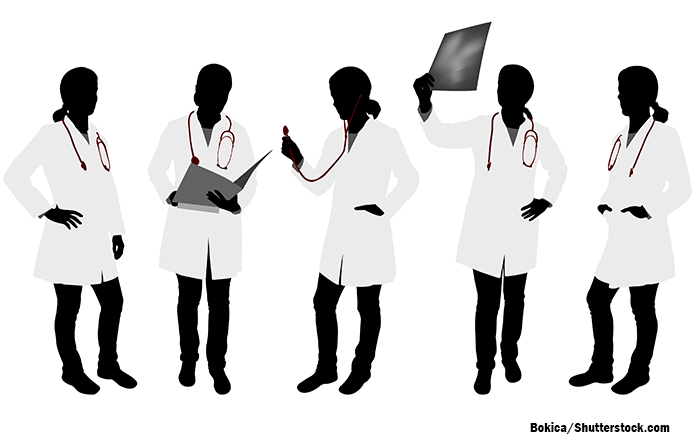

Results of a multi-center study of patients’ assumptions about health care professionals’ roles based on gender show significant stereotypical bias towards males as physicians and females as nurses. The research team, led in New Orleans by Lisa Moreno-Walton, MD, LSU Health New Orleans Emergency Medicine at University Medical Center (UMC), found patients recognized males as physicians nearly 76% of the time. Female attending physicians were recognized as physicians only 58% of the time. The research paper is published in the Journal of Women’s Health.
“Despite the fact that about 52% of all medical students are women, unconscious/ implicit bias is so strong that even when women introduce themselves to patients as the doctor, patients fail to recognize the female as a physician,” notes Dr. Moreno-Walton.
The researchers analyzed the responses of 150 patients to an anonymous survey conducted in the Emergency Department (ED) of a teaching hospital in Miami Beach, Florida. After being seen by the nurse, resident physician, and attending physician who introduced themselves, explained their exact roles and wrote their names on the white boards in the exam rooms next to the nurse, resident or attending physician designation, volunteers administered the survey. Patients were asked to recall the gender of their nurse, resident physician, and attending physician.
The patients’ genders did not affect their recognition of physicians and nurses. Both male and female patients correctly recognized female physicians less than male and female more than male nurses. Patients’ ages, though, did. Younger patients more often correctly identified male nurses as nurses and female attending physicians as physicians than did older patients.
“At UMC, the vast majority of female ED physicians report that on our monthly patient satisfaction reports, only about 50% of our patients state that they were seen by a physician,” adds Moreno-Walton. “All of us know we are seeing all of our patients, but the patients do not know that we are doctors.”
This experience is a common one.
“When I do my career development seminars all over the country, I ask, ‘If there is any woman in the room who has NEVER been mistaken for a nurse, please raise your hand,'” says Moreno-Walton. “In seven years of doing these seminars, I have yet to have even one woman physician raise her hand. Implicit bias, microaggressions and the sometimes present explicit bias can do significant damage to the morale, self-esteem and confidence of health care professionals who are females and/or underrepresented minorities. This is not trivial.”
The research team advises further research be conducted to understand the implications of implicit gender biases on patient satisfaction, patient compliance, physician burnout, compassion fatigue and job satisfaction, among other issues.

